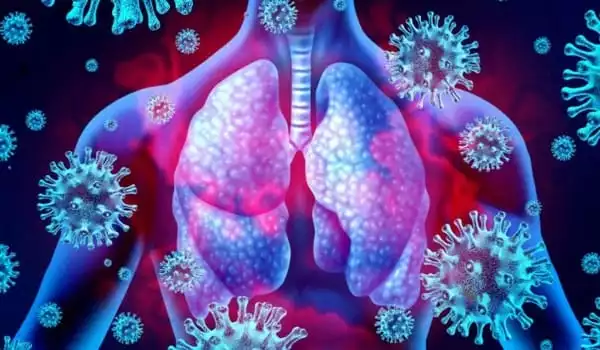Infected cells create and release tiny proteins known as interferons, which aid in immunological protection against viruses. Interferons hinder virus reproduction by directly interfering with their ability to multiply within an infected cell.
According to research, chronic viral infections have a dramatic and long-lasting impact on the immune system in ways that are comparable to those seen during aging. Researchers used systems immunology and artificial intelligence to characterize and evaluate immune responses in an aging population, persons with HIV on anti-retroviral therapy, and patients infected with hepatitis C before and after the virus was treated with a medicine that has a 97 percent cure rate.
Chronic viral infections, according to research from the Buck Institute and Stanford University, have a substantial and long-lasting impact on the human immune system in ways that are similar to those seen during aging. The findings have been published in the Proceedings of the National Academy of Sciences.
Researchers used systems immunology and artificial intelligence to profile and compare immune responses in an aging population, people with HIV on long-term anti-retroviral therapy, and people infected with hepatitis C (HCV) before and after the virus was treated with a drug that has a 97 percent cure rate. T cell memory expansion, activation of intracellular signaling pathways of inflammation, and decreased susceptibility to cytokines in lymphocytes and myeloid cells are all shared immune system changes.
Chronic inflammation stemming from immune system dysfunction is associated with many of the diseases of aging. Whether chronic viral infection contributes to age-associated immune dysfunction is still an open question, but studies of this type provide a way to start getting answers.
David Furman
“Chronic inflammation stemming from immune system dysfunction is associated with many of the diseases of aging,” says David Furman, PhD, Buck Institute associate professor and senior author of the paper. “Whether chronic viral infection contributes to age-associated immune dysfunction is still an open question, but studies of this type provide a way to start getting answers. At this point it’s clear that both aging and chronic viral infections leave profound and indelible marks on immunity.”
The difference between acute and chronic viral infections
In the event of acute viral infections, the body is normally able to clear the offending agent, and the immune system (in the best-case scenario) develops antibodies that guard against similar diseases — think of common colds and seasonal flus. But, in addition to HIV and HCV, there exist viruses that may survive in the body and establish “host-parasite housekeeping,” in some circumstances without the host’s knowledge. According to Furman, 70 to 90 percent of the population is infected with CMV, which is safe in healthy people but dangerous in pregnant women or those with impaired immune systems. Chronic infections can also be caused by various herpes viruses (which cause genital herpes, cold sores, chicken pox/shingles, and mononucleosis).

“Each of us has our own virome; it’s a collection of viral infections you’ve had throughout your life,” Furman explains. “You were most likely infected by 12 or 15, if not more, viruses that you were unaware of. Fortunately, technology now allows us to characterize these illnesses in the human population, which is assisting us in moving these types of investigations ahead.” According to Furman, this is the first study to properly include the notion of systems immunology and holistically examine the immune system across multiple patient cohorts utilizing the same technological platforms.
Reason for hope — results show some plasticity in immune response
Despite being treated with virus-suppressing medicines for over ten years, people with HIV had immune system dysregulations, according to the study. However, HCV virus clearance (through the medicine sofosbuvir) restored some cellular sensitivity to interferon-a, which suppresses viral multiplication. “This adaptability indicates that there is space for intervention in both chronic viral infections and aging,” Furman says.
“It’s simply a matter of discovering and comprehending the biochemical pathways and networks at work.” STAT1, the key transcription factor triggered by interferons, was shown to be altered in this study. STAT1 is essential for proper immune responses, notably against viral, mycobacterial, and fungal infections.
Implications for COVID-19?
In terms of the COVID-19 epidemic, Furman believes we are in the midst of a “live” experiment. Future research is needed, he says, to determine whether the immune system’s functional imprinting is hardwired to only involve the chronic nature of specific infections, or whether relatively short-lived but vigorous inflammations like COVID-19 also leave a long-lasting imprint on the immune system. “Has the immune system of individuals afflicted with the coronavirus suffered a significant setback? That is a notion, but we have no idea what will happen “Furman is working on research utilizing COVID-19 and immunity in collaboration with Stanford University and the University of California, San Francisco.















